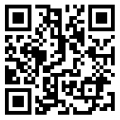Olivier Pourret (January 10th 2024)
New Year, but still time to advocate for the correct use of the terms « Heavy Metal ». If I ask ChatGPT for a definition of « Heavy Metal », it answers something like that:
« Heavy metal is a genre of rock music characterized by its aggressive sound, amplified distortion, and emphatic beats. It typically features strong rhythms, electric guitar riffs, and powerful vocals. Lyrically, it often explores themes of rebellion, power, and sometimes fantasy or mythology. Bands like Black Sabbath, Iron Maiden, Metallica, and Judas Priest are considered pioneers and influential figures within the genre. »
I totally agree with artificial intelligence.

However, « heavy metal » is a term used in science as well. In chemistry and environmental science, « heavy metals » refer to a group of metallic elements that have a high atomic weight and density. Some common examples include lead, mercury, cadmium, arsenic, and chromium, among others. These elements can be toxic to living organisms in high concentrations and can have detrimental effects on the environment and human health when they accumulate. They’re often a concern in pollution and industrial contamination due to their persistence and potential for bioaccumulation in the food chain…
It is a big mistake!
See all i wrote in my previous articles:
On the Necessity of Banning the Term “Heavy Metal” from the Scientific Literature
“Heavy metal” – What to do now: To use or not to use?
| Except where otherwise noted, content on this personal blog is licensed under a Creative Commons Attribution 4.0 International license. |
